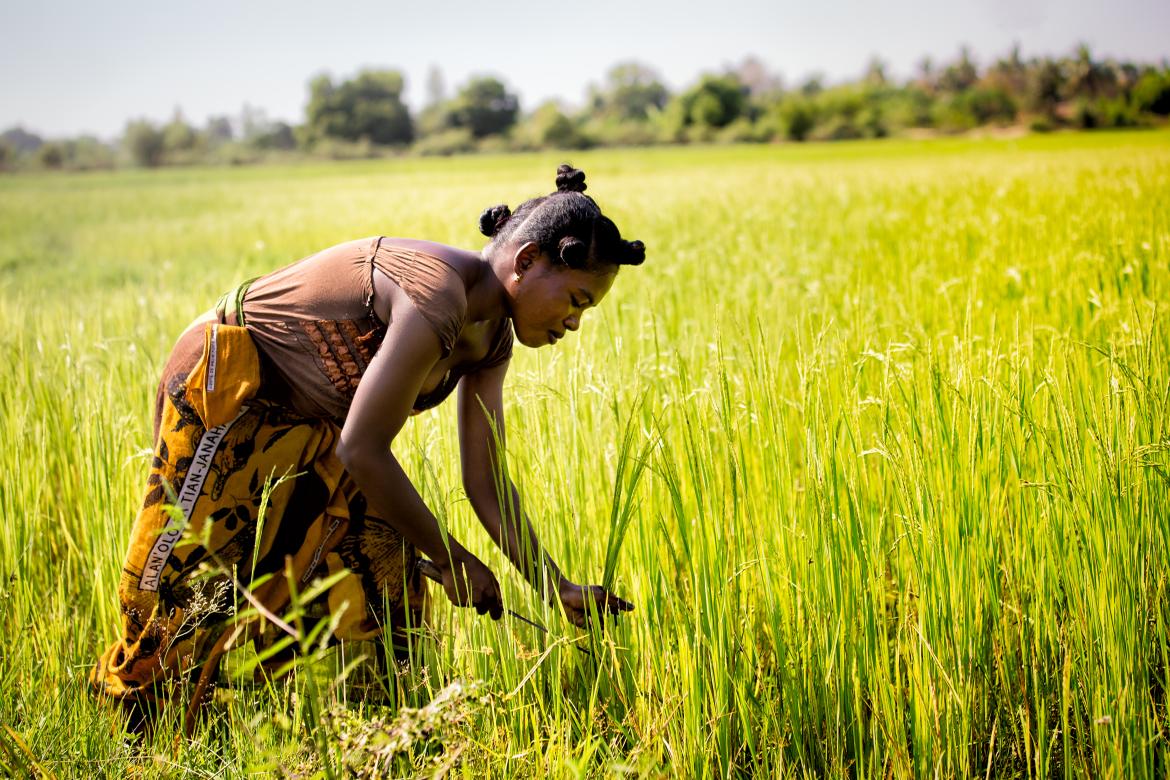Gender Equality in Climate Resilience

On June 14, the workshop 'Inclusive Insurance: Accelerating Gender Equality in Emerging Markets', a collaborative effort by MIGA, IDF, and The Geneva Association brought together stakeholders committed to advancing gender inclusion in the insurance sector. The session titled “Gender Equality and the Importance of Climate and Disaster Risk Finance and Insurance (CDRFI)” shed light on the urgent need to account for gender differences in climate vulnerabilities, stressing the importance of incorporating gender considerations into insurance products and financial services to ensure they address the specific needs of all genders.
Astrid Zwick, Co-Director of the Global Shield Secretariat, stressed the criticality of gender-responsive insurance in mitigating climate vulnerabilities that disproportionately impact women and in dismantling systemic barriers. She highlighted the importance of integrating gender considerations into every phase of Climate and Disaster Risk Finance and Insurance (CDRFI) product development. This strategy, she pointed out, not only fortifies resilience but also guarantees that insurance solutions are tailored to meet the varied needs of vulnerable groups.
Launched at COP27, the Global Shield against Climate Risks initiative is set to transform disaster risk finance by ensuring pre-arranged funding for vulnerable populations, with a strong focus on inclusive, gender-sensitive disaster risk management that engages vulnerable communities, particularly women, in decision-making processes.
Astrid points out that despite strides made in supporting vulnerable nations, a key hurdle remains: the scarcity of sex-disaggregated data in the insurance industry. This data dearth hampers the assessment of gender-focused initiatives and the progress they make. Addressing this gap is crucial for crafting insurance solutions that truly mitigate the distinct risks women face, especially amid climate-related disasters.
IFC's 'Her Fintech Edge' report highlights key barriers that prevent women from fully accessing insurance, ranging from socio-cultural norms to digital and financial literacy gaps. Despite 59% of fintech firms collecting gender-specific data, less than a third harness this information to create tailored products for women. This oversight is significant, considering women's financial prudence and the untapped market potential they represent, estimated at USD 1.7 trillion (IFC’s SheforShield, 2015)
GIIF through its initiatives is a key player in broadening inclusive climate risk insurance reach in the developing world. GIIF's current efforts are centered on crafting inclusive insurance offerings, promoting digital innovation, and strengthening capacity. There's a concerted effort to empower women by providing insurance solutions designed for their unique circumstances. The role of sex-disaggregated data is significant for insurers to design products that meet women's specific risks, needs, and preferences, to promote financial empowerment and resilience. Such data-driven insights are central to shaping policies that advance gender inclusion in insurance, rather than reinforcing existing disparities.
Ethiopis Tafara, Vice President, Chief Risk, Legal and Sustainability Officer at MIGA, shared valuable insights on the inequalities women face on boards and in leadership positions. He emphasized the importance of using guarantees as a gender tool and highlighted MIGA's commitment to using Political Risk Insurance (PRI) and credit enhancement to catalyze private sector investments and narrow gender gaps. By utilizing guarantees to support gender equality, Ethiopis called for more collaboration in this area by the private and public sectors towards mobilizing investments.
As part of GIIF's commitment to integrating gender across projects, GIIF and the IFC Women in Insurance team are joining forces with the Federation of African National Insurance Companies (FANAF) a professional association with member companies from 27 different African countries to launch a gender initiative to foster more inclusive insurance landscape, gender diversity and equality within the insurance industry. It forms part of the broader IFC’s efforts to expand women's access to insurance and enhance their employment opportunities within the sector.
In wrapping up, the workshop highlighted the important role of data in driving gender inclusion within the insurance sector. By integrating gender considerations into product design and supporting data-gathering initiatives, industry stakeholders have the potential to forge a more equitable insurance landscape that benefits women. Now is the time for all stakeholders to ensure that insurance not only serves as a shield against economic setbacks from disasters but also acts as a catalyst for gender equality through collaborative efforts. This commitment lies at the core of improving widespread data collection and its effective utilization by the industry to achieve gender-responsive policies and expand support for women's coverage throughout the insurance sector.
